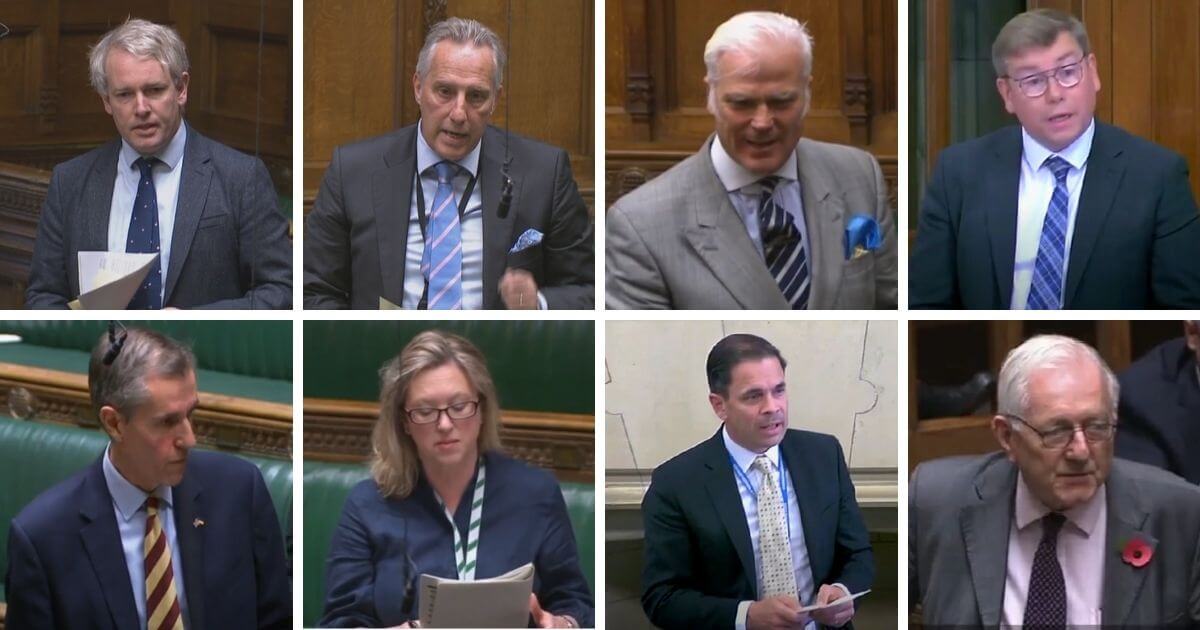During a Parliamentary debate on assisted suicide, a number of MPs in the House of Commons alerted the public to the dangers posed by such legislation including the increased feeling of being a burden, the lack of autonomy created by assisted suicide, and the pressure to end one’s own life.
On Monday, MPs debated assisted suicide, with a number of them explaining the dangers of such legislation to the public.
Danny Kruger, MP and chair of the All-Party Parliamentary Group for Dying Well, argued that rather than increasing autonomy for the sick and the dying, assisted suicide legislation inevitably “would narrow their autonomy”.
“It would reduce their freedom substantially because it would put them on a path with only one destination”, he said. “That is because of the incentives that assisted dying would introduce”.
Pressure from the healthcare system and from family
He argued that the pressure to end one’s life through assisted suicide would come both from the healthcare system in its search to save costs and also, in some cases, from families themselves.
“The simple, blunt fact is that it is cheaper for the system to help people end their life early than to care for them for weeks, months or years. That is not an argument we hear for assisted dying, but it is compelling”, he said.
“The cat was let out of the bag rather when the Member of the Scottish Parliament who is trying to legalise assisted dying in Scotland cited research from Canada showing that the health service there has saved hundreds of millions of dollars in care costs”.
Kruger argued that the experience of other countries shows that assisted suicide is often chosen because people feel they are a burden on their family.
“Tragically, a lot also say that they are lonely. Is that not terrible — people getting the state to help kill them because they do not want to be a burden on a family that never visits them? Talk to any hospice manager about relatives and they will quietly confirm it. There are a lot of people who want granny or grandpa to hurry up and die”.
Fear of being a burden
Andrew Selous MP and a number of other MPs echoed similar points about the fear of being a burden being created by such legislation. In particular, Peter Gibson MP, who used to be a lawyer, said that on occasion, he had dealt with “the most rapacious of family members seeking to manipulate”.
“I fear that even with all the safeguards possible, such individuals could exercise the most sinister of coercion were we to permit [assisted suicide]”.
“I fear that if assisted dying is legalised, terminally ill people may feel pressured into ending their lives. I do not believe that we should place anyone in that position. Such a change in the law would have a profound impact on the relationship of terminally ill patients with their doctors”.
Kruger also drew attention to the important fact that no major disability rights organisation supports assisted suicide.
“It is the most vulnerable people, who by definition rely on the support of other people — their families and professionals — who are most at risk of assisted dying laws being misapplied, which is what I fear would happen”.
Ian Paisley MP argued that legalising assisted suicide creates hopelessness.
“Today, I am afraid we are giving hopelessness to some and saying, ‘This is the only way out. We can’t do anything more’. We can do more if we find the courage to do so”.
Assisted suicide and euthanasia in the UK
The sick and vulnerable are currently protected against assisted suicide and euthanasia in the UK.
A 2020 British Medical Association (BMA) survey showed that 84% of doctors in palliative medicine would not be willing to perform euthanasia on a patient should the law ever change.
Assisted suicide was most recently debated and rejected in Parliament in 2015 by 330 votes to 118.
A recent Irish study on ageing found that three-quarters of people over 50 who had previously expressed a wish to die no longer had that desire two years later, and that many who do express a wish to die do so for non-medical reasons. The state of Oregon also found 53.1% of patients who chose an assisted suicide were concerned with being a “burden on family, friends/caregivers”, 94.3% of patients were concerned with being “Less able to engage in activities making life enjoyable”, 93.1% were concerned with “losing autonomy”, and 71.8% were concerned with “loss of dignity”. Of the total who have died since 1997, only 27.4% have listed “inadequate pain control, or concern about it” as one of their end-of-life concerns.
Right To Life UK spokesperson, Catherine Robinson, said: “In every country where assisted suicide and/or euthanasia have been introduced, the law has expanded to include more people and make it easier to end life”.
“The risks associated with assisted suicide legislation are perfectly evident to anyone who actually wants to know. As Danny Kruger said, it is simply not ‘possible to design out the risks’.”












